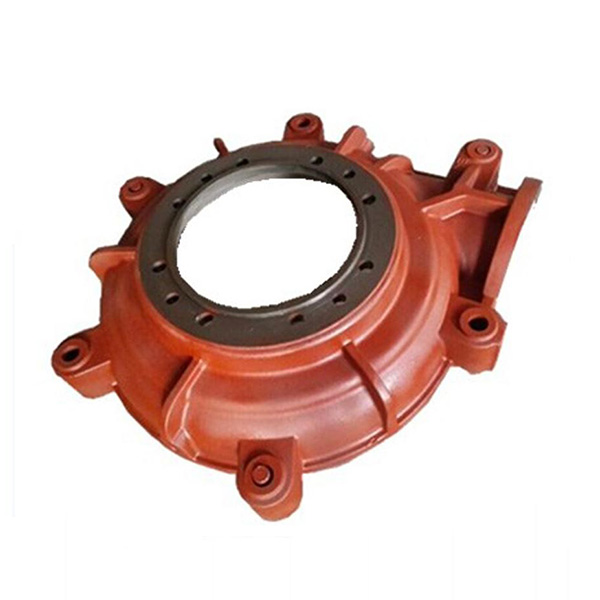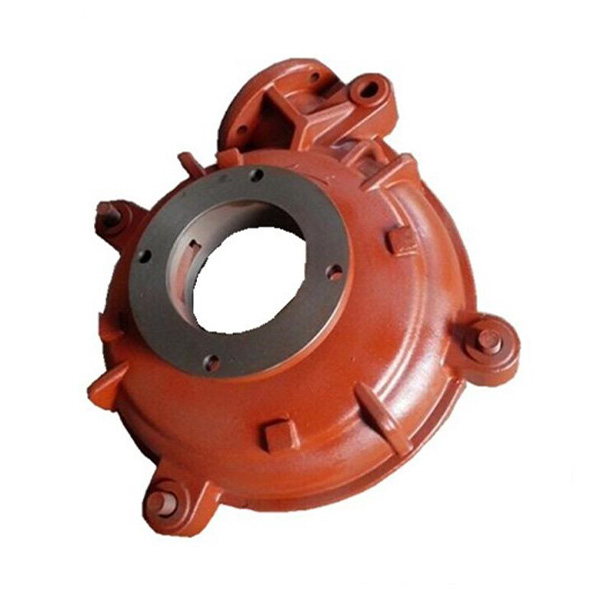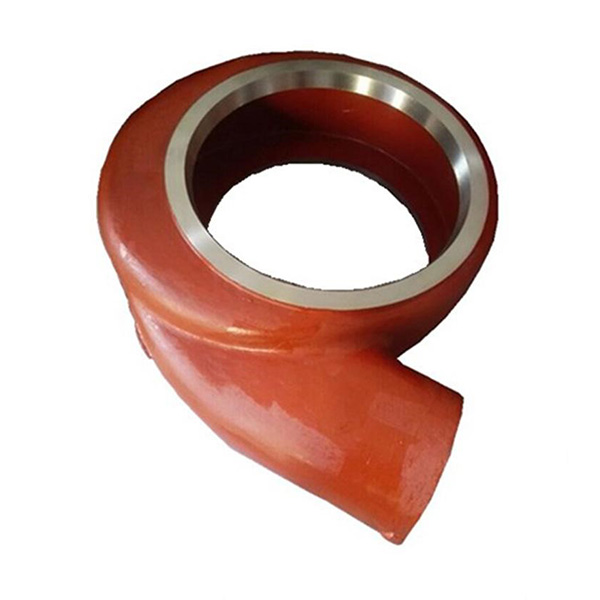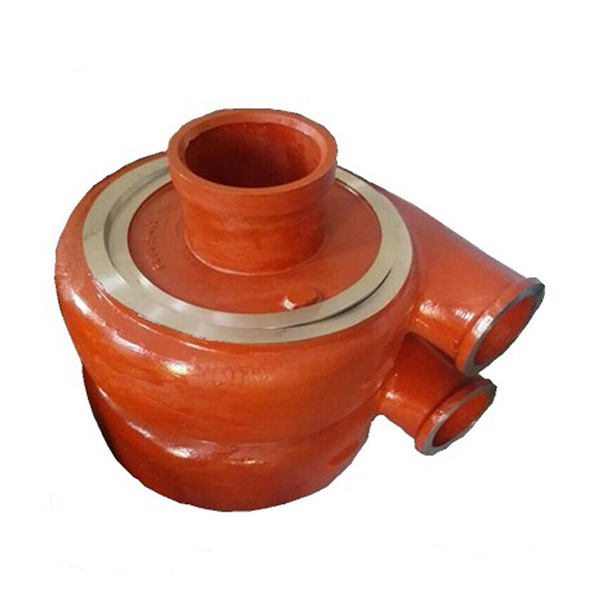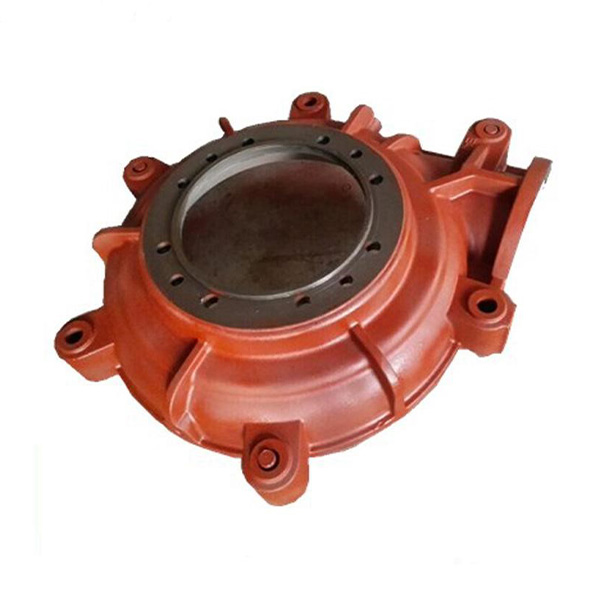Mobile:+86-311-808-126-83
Email:info@ydcastings.com
English
Jul . 23, 2025 07:01
Back to list
High-Performance Impeller for Pumps - Durable & Efficient Water Circulation
Impellers serve as the heart of countless fluid movement systems, from industrial pumps to critical water supply machinery. In this comprehensive guide, we explore the mechanisms of impeller operation, the crucial role of cap ends, trends in pump engineering, and technical innovations transforming the impeller on pump sector. Discover cutting-edge solutions and how Welcome To Hebei Yuanda Trade Co., Ltd. achieves outstanding quality with their Pump Case products, integrating advanced pumpe impeller and water pump impeller designs for diverse applications.
Enterprise Information
- Company Name: Welcome To Hebei Yuanda Trade Co., Ltd.
- Website: https://www.ydcastings.com
- Telephone: +86-311-808-126-83
- Email: info@ydcastings.com
- Mobile: +86 19333736198
- Address: No.563 Xinhua Road, Shijiazhuang City, Hebei Province, P.R. China. 050051.
1. The Critical Role of Impeller in Pump Engineering
The impeller is a rotary component designed to transfer energy from the engine or motor to the fluid being pumped. From water pump impeller to robust pumpe impeller solutions for chemicals or fuels, the impeller's design, materials, and balance determine system efficiency, reliability, and lifespan. Especially in impeller on pump assemblies, advanced aerodynamic analysis has enabled dramatic performance improvements. As reported by the Turbomachinery International, next-generation impeller geometries achieve up to 15% more efficiency compared to traditional models.
2. Industry Trends: Smart Impeller Applications and Sustainable Manufacturing
The evolution of impeller technology is shaped by demands for energy savings, new environmentally friendly materials, and digital monitoring. IoT-enabled water pump impeller units now offer real-time diagnostics and predictive maintenance. Meanwhile, the meta-analysis presented in JMSE Journal summarises that ongoing research into low-resistance impeller on pump surfaces delivers measurable improvements in cavitation resistance and noise reduction.
3. Product Highlight: Pump Case
Product Overview
- Product Name: Pump Case
- Weight: 30-500kg
- Material: GG25 - Cast Iron
- Casting Process: Resin Sand Casting
- Product Link: View Pump Case Details
4. Impeller Technical Parameters & Data Table
Drawing from both manufacturer data and leading industry specifications[1], here is a comparison of essential impeller parameters for engineering and procurement personnel:
| Type | Material | Diameter (mm) | No. of Blades | Flow Rate (m³/h) | Total Head (m) | Usage |
|---|---|---|---|---|---|---|
| Semi-Open Impeller | GG25 Cast Iron | 210-450 | 5 | 60-700 | 10-90 | Slurry, Dirty Water |
| Enclosed Impeller | Stainless Steel | 100-350 | 6-8 | 30-800 | 15-120 | Clean Water |
| Channel Impeller | Bronze | 180-380 | 3-4 | 40-600 | 20-75 | Sewage |
| Non-Clog Impeller | GG25 Cast Iron | 150-400 | 2-3 | 20-400 | 7-45 | Wastewater |
| Special Alloy Impeller | Super Duplex | 120-340 | 4-5 | 25-350 | 12-85 | Chemical Processing |
Impeller Technology Trend Chart
5. Pump Case: Key Technical Indices & Visualization
Below are principal technical indicators of the Pump Case. The data visualization showcases product categoies, material distribution, and weight performance over time.
6. Application Scenarios: Where Impellers Deliver Value
Applications of impeller technology include:
- Municipal Water Systems: Water pump impellers ensure reliable potable water supply and fire suppression networks.
- Industrial Processing: High-durability cap ends and advanced pumpe impeller types operate under aggressive chemicals and abrasive slurries.
- HVAC & Cooling: Chiller plants use enclosed impeller on pump types for optimal efficiency.
- Irrigation and Agriculture: Open and semi-open impeller varieties handle water with debris or sand.
- Oil & Gas Refineries: Robust special alloy impellers withstand corrosive hydrocarbons.
- Marine Applications: Bronze impellers provide longevity in seawater environments.
7. Frequently Asked Questions: Impeller & Pump Case Technical QA
Professional FAQ
Q1: What is the benefit of GG25 Cast Iron for impeller or pump case construction?
A: GG25 Cast Iron offers exceptional strength, excellent vibration damping, and resistance to wear. This makes it ideal for high-duty impeller and cap ends requiring consistent performance across wide temperature ranges. It’s widely used due to balance between machinability and mechanical robustness. (Read more)
A: GG25 Cast Iron offers exceptional strength, excellent vibration damping, and resistance to wear. This makes it ideal for high-duty impeller and cap ends requiring consistent performance across wide temperature ranges. It’s widely used due to balance between machinability and mechanical robustness. (Read more)
Q2: How do cap ends affect performance?
A: Cap ends maintain correct axial clearance and balance on rotating assemblies, preventing excessive vibration and limiting axial thrust. An improperly fitted cap end can reduce impeller life and the overall pump efficiency.
A: Cap ends maintain correct axial clearance and balance on rotating assemblies, preventing excessive vibration and limiting axial thrust. An improperly fitted cap end can reduce impeller life and the overall pump efficiency.
Q3: What determines the correct size and blade number for an impeller on pump?
A: Proper sizing depends on target flow rate, head (pressure), and fluid characteristics. More blades generally mean smoother flow but may increase energy absorption and reduce passage size, impacting solids-handling ability.
A: Proper sizing depends on target flow rate, head (pressure), and fluid characteristics. More blades generally mean smoother flow but may increase energy absorption and reduce passage size, impacting solids-handling ability.
Q4: What is Resin Sand Casting and why is it preferred for Pump Case?
A: Resin sand casting enables detailed and high-tolerance casting of complex geometries like pump cases. It ensures surface smoothness, repeatability, and excellent dimensional accuracy for impeller on pump housings.
A: Resin sand casting enables detailed and high-tolerance casting of complex geometries like pump cases. It ensures surface smoothness, repeatability, and excellent dimensional accuracy for impeller on pump housings.
Q5: What international installation standards do pumpe impeller systems follow?
A: Most are manufactured according to EN ISO 9906, ISO 5199 or ANSI/HI 1.3 standards to ensure performance, interchangeability, and global compliance. See (Hydraulic Institute).
A: Most are manufactured according to EN ISO 9906, ISO 5199 or ANSI/HI 1.3 standards to ensure performance, interchangeability, and global compliance. See (Hydraulic Institute).
Q6: How does impeller selection impact energy efficiency?
A: A mismatched impeller increases power consumption and risk of cavitation. Accurate selection matches BEP (best efficiency point), minimizing operational costs while maximizing life.
A: A mismatched impeller increases power consumption and risk of cavitation. Accurate selection matches BEP (best efficiency point), minimizing operational costs while maximizing life.
Q7: Are there corrosion-resistant options for water pump impeller?
A: Yes. Stainless steel and special super-duplex alloys feature outstanding corrosion and erosion resistance even in seawater and aggressive chemical media, greatly extending service life.
A: Yes. Stainless steel and special super-duplex alloys feature outstanding corrosion and erosion resistance even in seawater and aggressive chemical media, greatly extending service life.
8. Choosing Your Next Impeller: Practical Recommendations
When specifying a new impeller or Pump Case from Welcome To Hebei Yuanda Trade Co., Ltd.:
- Clarify pumping fluid properties (corrosive, abrasive, solids content, temperature, viscosity, etc.).
- Determine duty requirements: flow rate, system pressure, NPSHr, and head curve.
- Choose correct material: Cast iron (economical), bronze (marine), stainless/superalloy (chemical/aggressive fluid).
- Select the optimal cap ends and sealing arrangement for longevity.
- Verify footprint, mounting and interface requirements to meet EN, ANSI, or ISO standards.
- Consult with manufacturer experts on custom geometry, coatings, and performance upgrades.
9. Conclusion & Authoritative References
In the changing world of fluid engineering, advanced impeller technology is central to sustainable, reliable, and efficient pump and motion systems. Leveraging expertly manufactured pump case structures and proven cap ends, Welcome To Hebei Yuanda Trade Co., Ltd. stands as a high-quality source in the global supply chain.
Cited Industry Publications:
- Turbomachinery International. "Impeller Designs Increase Pump Efficiency". Read Article
- JMSE Journal, "Impeller Surface and Pump Cavitation Review". Full Text
- Pumps & Systems Magazine, "Basics of Rotating Equipment: Impeller Selection". See Details
- Hydraulic Institute, ANSI/HI Standards. Official Site
- Total Materia, "GG25 Cast Iron Properties". Material Info
Latest news
-
Materials Used in Manufacturing Cap End Pipe FittingsNewsNov.24,2025
-
Material Properties of CF8M CastingNewsNov.24,2025
-
How to Inspect Pump Cap Ends for DamageNewsNov.21,2025
-
Backward Curved Impeller – Efficient Airflow Solutions for Industry | YD CastingsNewsNov.21,2025
-
Automobile Water Pump - Efficient, Quiet, Durable & ElectricNewsNov.21,2025
-
Impeller for Pumps – High-Efficiency, Durable, OEM-ReadyNewsNov.21,2025
Related PRODUCTS

